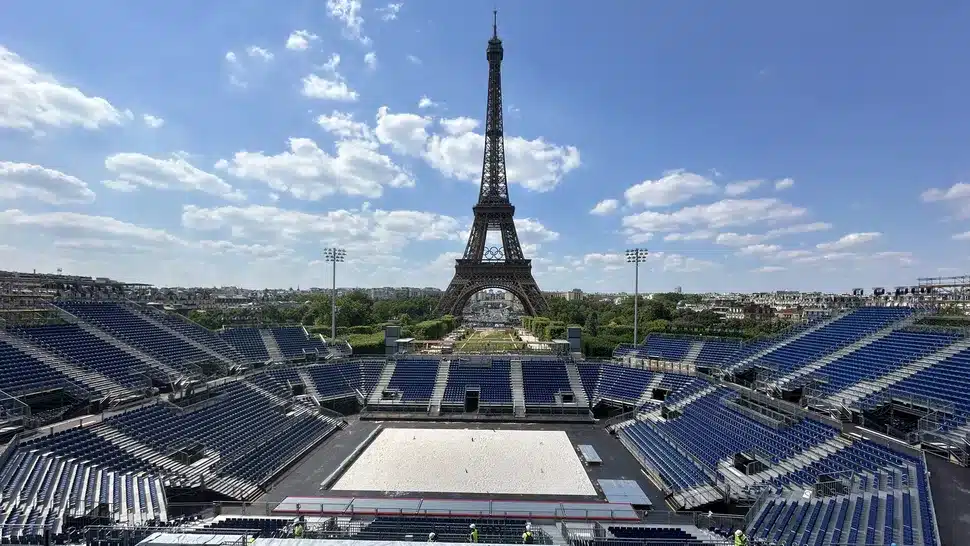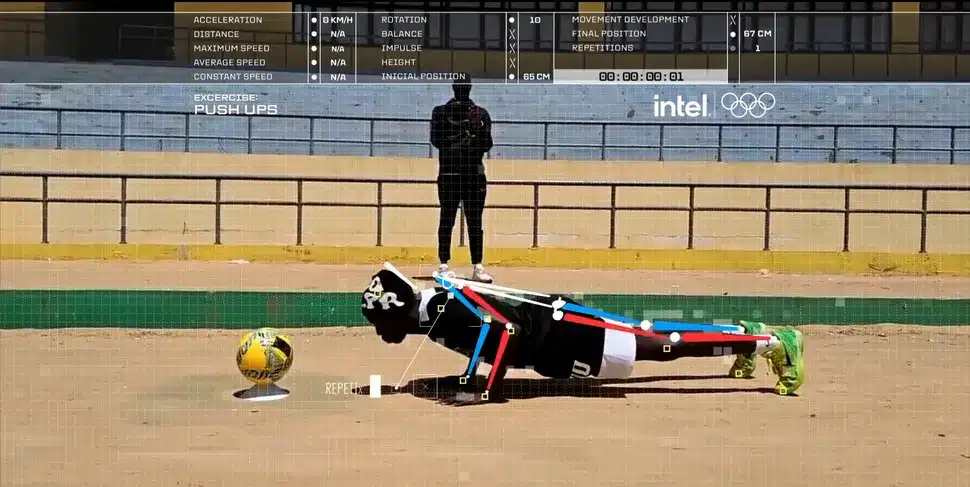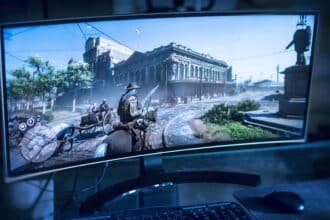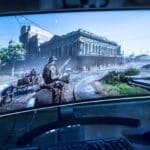As the world eagerly anticipates the Paris Olympic Games, Intel is set to revolutionize the event with the infusion of artificial intelligence (AI). This technological integration promises to enhance both the athletes’ performance and the viewers’ experience, offering unprecedented insights and interactive features. By leveraging AI, Intel aims to create a more immersive, efficient, and engaging Olympics. Here’s a detailed look at how AI will transform the Paris Olympic Games and what it means for the future of sports.

Enhancing Athlete Performance with AI
Real-Time Performance Analysis
One of the most significant impacts of AI will be on athlete performance analysis. Intel’s AI solutions will provide real-time data on various aspects of an athlete’s performance, including speed, technique, and biometrics. This data can be used to make immediate adjustments during training and competition, potentially giving athletes a competitive edge.
- Biomechanical Analysis: AI will analyze athletes’ movements to optimize their techniques, helping to reduce the risk of injury and improve efficiency.
- Predictive Analytics: By examining past performance data, AI can predict future performance trends and identify areas for improvement.
Personalized Training Programs
AI-driven insights will enable the creation of personalized training programs tailored to each athlete’s unique needs. These programs will consider various factors such as an athlete’s physical condition, performance metrics, and even psychological state to optimize training regimens.
- Adaptive Training Plans: AI can adjust training plans in real-time based on an athlete’s progress and performance, ensuring they are always training at optimal levels.
- Nutrition and Recovery: AI will also provide recommendations on nutrition and recovery strategies, helping athletes maintain peak condition throughout the competition.
Revolutionizing the Viewer Experience
Interactive and Immersive Viewing
For viewers, Intel’s AI technology will transform how they experience the Olympic Games. AI-driven features will offer interactive and immersive viewing options, making the event more engaging and enjoyable.
- Enhanced Broadcasts: AI will enhance live broadcasts with real-time statistics, augmented reality (AR) overlays, and in-depth analysis, providing viewers with a richer understanding of the events.
- Personalized Content: Viewers will receive personalized content based on their preferences and viewing history, allowing them to follow their favorite athletes and events more closely.
Virtual Reality (VR) and Augmented Reality (AR)
AI will also power VR and AR experiences, bringing viewers closer to the action than ever before. These technologies will enable fans to experience the games from unique perspectives, such as a first-person view of an athlete or a 360-degree view of the stadium.
- Virtual Front-Row Seats: VR will offer virtual front-row seats to events, providing an immersive experience that mimics being at the games in person.
- Interactive AR Elements: AR will overlay additional information and interactive elements onto live feeds, allowing viewers to engage with the content in new and exciting ways.
Improving Event Management and Security
Efficient Event Management
AI will streamline various aspects of event management, ensuring the games run smoothly and efficiently. From logistics and scheduling to crowd management, AI will optimize operations and enhance the overall experience for athletes, officials, and spectators.
- Smart Scheduling: AI will optimize event scheduling to minimize downtime and ensure a seamless flow of events.
- Logistics and Transportation: AI-driven systems will manage logistics and transportation, ensuring timely and efficient movement of athletes, equipment, and spectators.
Enhanced Security
Security is a paramount concern for any large-scale event, and AI will play a crucial role in ensuring the safety of everyone involved. AI-powered surveillance and monitoring systems will enhance security measures, providing real-time threat detection and response capabilities.
- Predictive Security: AI will analyze patterns and behaviors to predict potential security threats and take preventive measures.
- Facial Recognition: AI-driven facial recognition technology will enhance access control and ensure that only authorized individuals can enter restricted areas.
The Future of AI in Sports

The integration of AI into the Paris Olympic Games marks a significant milestone in the evolution of sports technology. As AI continues to advance, its applications in sports will only grow, offering even more sophisticated tools and insights for athletes, coaches, and fans.
- Long-Term Impact: The long-term impact of AI in sports will likely include even more personalized and precise training programs, enhanced fan experiences, and improved event management and security.
- Global Adoption: As the benefits of AI become more apparent, its adoption in sports around the world will increase, transforming how we train, compete, and experience sporting events.
Conclusion
Intel’s infusion of AI into the Paris Olympic Games is set to transform the event in profound ways. By enhancing athlete performance, revolutionizing the viewer experience, and improving event management and security, AI is poised to create a more immersive and efficient Olympics. As we look forward to the games, the innovations introduced by Intel highlight the exciting potential of AI in sports and beyond.
















